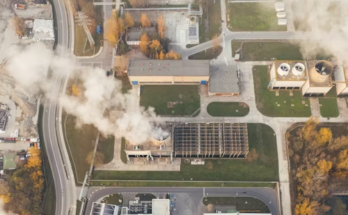Many people experience anxiety about climate change. It is natural to worry about an issue that threatens humanity and other forms of life on Earth.

Interventions that focus on emotional safety and community support, such as Carbon Conversations or social media detoxes, may provide much-needed support.
Practice self-care.
If climate change is becoming overwhelming, don’t attempt to ignore or deny its existence. Instead, take a step back from the constant stream of negative news reports and focus on what changes you can control (like cutting back on travel or purchasing more locally grown foods). Be positive while reminding yourself that every bit counts.
Many individuals who experience eco-anxiety also feel connected to nature; reconnecting to it may help ease symptoms. Some recommend keeping a rock, twig or other natural object close when feeling disconnected or anxious, while other practices, such as mindfulness meditation and grounding techniques, may also prove helpful.
At times of stress or emotional uncertainty, it can be easy to become overwhelmed with emotions ranging from fear, sadness and frustration to hopelessness and even hopelessness. Crying or getting angry are normal responses, and finding someone trusted to open up about your fears and hopes can be highly therapeutic.
Studies show that when people are encouraged to connect with nature, they’re more likely to gain a sense of agency and optimism regarding their ability to impact the environment positively. Therefore, creating spaces in which clients can reframe and make meaning out of distressful experiences is essential in alleviating climate anxiety. Interventions that promote clients’ inner resilience are also invaluable in dealing with climate anxiety.
Emotionally safe environments and encouraging client self-care are equally as critical for treating climate anxiety as teaching them the science. Some of the most effective therapies include therapist reflection on and training about climate change and group therapy processes that foster community support; Carbon Conversations and Joanna Macy’s The Work That Reconnects have been recognized by researchers and participants alike as being particularly supportive and beneficial treatments.
Reach out for support.
Natural disasters ranging from wildfires and torrential storms to melting ice caps and biodiversity loss are unavoidably devastating events, both physically and psychologically. Such disasters may trigger feelings of helplessness, distress and despair–all known as eco-anxiety symptoms–if your family member seems overwhelmed. Here are some suggestions on how you can support their wellbeing:
First and foremost, it’s essential to recognize that everyone is impacted by climate change issues in some way or another—even those not directly impacted. Some of its most devastating impacts can be felt even in communities that have not been directly impacted. When witnessing such upheavals on television news coverage or social media feeds, individuals may experience emotional responses as they see and react to what’s unfolding around them.
As it’s essential to recognize, anxiety about environmental degradation is a normal human reaction. Suppose these fears are causing distress or interfering with daily life. In that case, professional guidance should be sought, but be sure to find a therapist experienced in dealing with such concerns (some therapists, like Hickman, specialize specifically in “eco-anxiety” and climate grief treatment; others find success working with clients who experience climate change anxiety as part of trauma recovery).
Therapists find that helping their clients “reframe” the information about climate change can be helpful, particularly if they feel overwhelmed. Therapy has proven its ability to address other forms of anxiety as well, such as GAD (generalized anxiety disorder).
Reaching out to a support group can be an excellent way to relieve stress and build community. Younger generations may feel marginalized by older generations’ inaction on climate change; forming connections with others who share similar concerns can be immensely therapeutic. Numerous groups, such as Climate Psychology Alliance or Good Grief Network, are available online or through phone and email and provide such support services.
Talk to your kids.
Talking openly with your children about climate change and its possible ramifications is essential—though sometimes difficult! Doing so will allow them to understand what is occurring, how it might impact them personally and their future plans, and ways they can take steps towards combatting it themselves.
If your child or teen is experiencing anxiety related to climate change, be an understanding ear. Children and teenagers often need someone they can talk to about their worries without feeling too intimidated to express themselves, so being there as an impartial listener and venting space could be invaluable. Also, remember to model how to react in similar situations as role models!
Psychotherapists working with eco-anxiety have found that meaning-focused coping strategies, like connecting with others who care about environmental issues and volunteering, are often effective. These methods can promote positive emotions like hope without neglecting negative ones like sadness and anger.
These techniques also assist children and teens in developing an accurate understanding of the complexity of climate change and its effects on humans. This is especially crucial given that young people tend to take an optimistic outlook and assume their actions cannot have an impact.
According to psychotherapist Mary-Jayne Rust, climate change is rooted in systems and is not limited to individual actions or lifestyle changes alone. While lifestyle changes can make an impactful statement about personal choices and actions taken towards our environment, our responsibility lies with how we change this global system and its negative consequences for Earth.
Effective ways of combatting eco-anxiety include taking action. Even small changes, such as eating more veggies or switching to bike riding instead of driving, can have a significant impact when made by many people simultaneously. Our top 10 tips on living sustainably can provide some starting points.
Take action.
Environmentalism can feel hopelessly complex and hopeless at times, yet climate change does not exist as an abstract concept – it affects real lives directly. People living in coastal areas, low-income communities, or populations with preexisting mental health conditions are especially vulnerable to its adverse impacts, such as flooding, crop loss, food insecurity and heat waves. Furthermore, solutions must be inclusive and consider the climate immediately.
Though staying informed about climate change is vital, it’s also vital that we prioritize our own wellbeing by avoiding “doom-scrolling,” the practice of submerging ourselves in an endless stream of negative news stories about species loss, droughts, and floods. Studies have demonstrated that prolonged exposure to such images and messages may increase anxiety levels significantly.
Finding ways to connect with nature can also be immensely therapeutic. Scheduling regular trips to beaches, hiking trails, or mountains can offer physical and emotional advantages; spending time in nature has been proven to reduce stress levels and enhance mood while helping individuals focus on what they can do to make a difference in the world.
Engaging in community sustainability initiatives, joining a local green group or volunteering as an advocate for climate protection can give you a sense of connection and purpose. Meaning-focused coping strategies, such as channelling eco-anxiety into positive action, have proven most successful at alleviating climate change distress.
People experiencing severe eco-anxiety, or those whose symptoms do not respond to at-home management techniques, should seek professional help. Cornell Health counsellors can assist in identifying thoughts and beliefs which worsen climate anxiety, teach relaxation techniques, and offer support while working through these challenges.
In addition to individual counselling, numerous groups provide support for climate anxiety. These range from climate cafes and non-government organizations (NGOs) like Good Grief Network’s 10-step program for managing collective grief and eco-anxiety to peer support groups on Facebook or websites like Let’s Talk (visit our Mental Health Care page for more details). It’s important to remember that climate anxiety will impact different people differently depending on factors like their location, socioeconomic status, gender identity and race/ethnicity.




